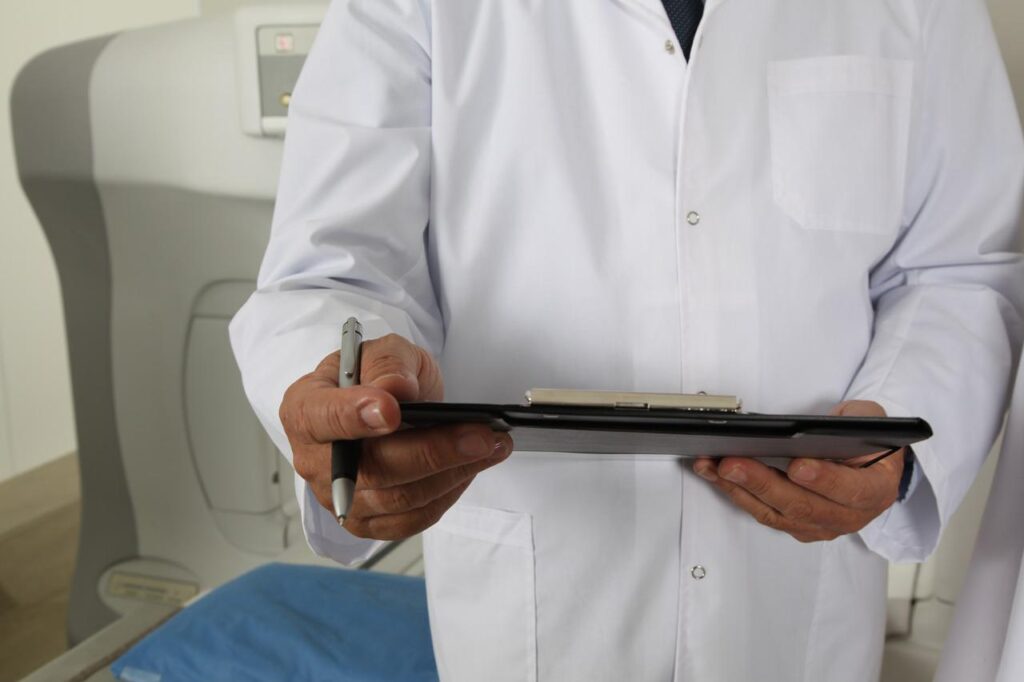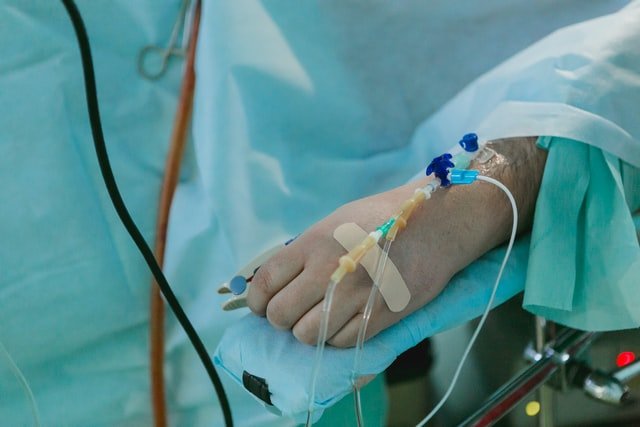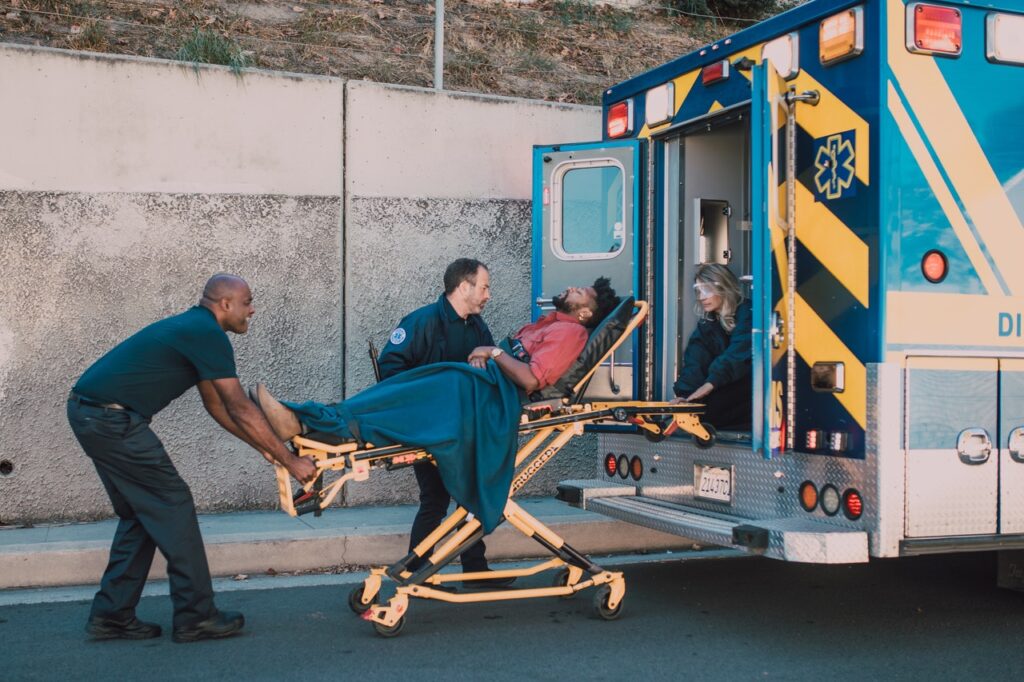- Home
- Get Help for Addiction
- Alcoholism In The Medical Profession
Alcoholism In The Medical Profession
Despite what many people might think, most people who have an alcohol addiction are in employment.
When someone in the workplace struggles with an addiction to alcohol, they are at risk of losing their job, taking too many sick days, being late on a frequent basis and allowing their standards to slip.
Their productivity will decrease, as will their decision-making skills and motivation to do a good job.
In most industries, these consequences are often as bad as the situation gets.
However, for those who work in the medical profession, struggling with an addiction whilst working as a doctor, nurse, dentist or consultant can result in much more serious consequences.
When it comes to healthcare, if a professional struggles with an addiction, then they might actually be breaking the law by turning up to work intoxicated on a substance.
In fact, a 2011 study highlighted that people in the UK (aged between 16 and 64) who are in jobs are a lot more likely to have drunk alcohol that week than those who did not have a job.
How Common Is Alcoholism Throughout The Medical Profession?

The reality is that millions of people across the UK and the world struggle with an addiction to alcohol.
When people picture the average person who is addicted to alcohol, they might not picture a healthcare professional.
However, a recent study has shown that four in every ten doctors within the UK admitted to drinking heavily, and cited alcohol as a major cause for not showing up to work frequently or being unproductive at work on a frequent basis.
On the flip side, one in every three companies cites alcohol and drug addiction as one of the most interfering things in their company.
When it comes to pay grades, four fifths of all high earners drink alcohol on a weekly basis.
When it comes to those in the medical and healthcare industry, working whilst suffering from an addiction to alcohol can put your patients and colleagues at risk.
However, turning up to work whilst still intoxicated can cause even more issues and damage.
For example, a 2007 study highlights that one-third of all workers at a hospital in Norwich were showing up at work whilst suffering from a hangover.
More so, 15% of these employees have also admitted to being drunk whilst still at work.
These statistics are extremely shocking and worrying.
By doing so, they are putting their patient’s health at risk, as well as their jobs.
What Are The Causes?

Most jobs these days are stressful.
However, doctors, therapists, nurses, dentists and consultants are responsible for caring for individuals and saving their lives every day.
In order to do so, you are almost expected to be a strong, independent and responsible individual.
Nevertheless, the stress and pressure of having a job like this can often force a person to turn to substances such as alcohol.
When you mix stress, pressure, and alcohol addiction with the responsibility of looking after people and saving lives, things can turn very dangerous, very quickly.
There are a number of stressors that could make a healthcare professional turn to drugs or alcohol for support.
A number of these factors are listed below:
The Long Hours

Most people who work in the healthcare industry end up working very long shifts.
These shifts often last for up to 12 hours and are often through the night.
This makes people extremely tired, and also isolates them from their family and friends, as they often have to work throughout the night and sleep throughout the day.
This can make a person extremely lonely.
Stressful Situations & Environments

Working in a hospital or GP practice is a very high-stress environment.
Not only do you have to deal with the pressure of saving lives every day, but you also have to deal with the emotional strain that comes with it.
For example, some doctors, nurses and surgeons suffer from depression after witnessing so many deaths, sad stories and tragedies on a day to day basis.
Staff Parties & Nights Out

Like most workplaces, hospitals and GP surgeries often have work parties, especially around Christmas time.
During these parties, a lot of staff members take the opportunity to blow off a lot of steam as a release.
Additionally, a lot of doctors and consultants are asked to attend networking events throughout the year.
During these types of networking events, people often find themselves drinking excessively in order to feel more confident and to fulfil social expectations.
Self Image

A lot of doctors, nurses and consultants might think that because they understand the body, their health and what addiction looks like, they won’t ever become addicted to alcohol or indeed any other substances.
As they see a lot of patients with addiction, they think that they aren’t ever capable of becoming like them.
This might contribute to their addiction, as they might not recognise their own warning signs and addiction.
This might make them deny their addiction and issues altogether.
Signs that A Medical Professional is Addicted to Alcohol

Just like with most mental health issues, doctors and medical professionals who are suffering from addiction are usually high functioning alcoholics.
They are addicted to alcohol, but are still able to turn up to work every day and hold a decent or ‘normal’ conversation whilst still struggling.
However, there are some tell-tail signs that someone, particularly a doctor, is struggling with an addiction to alcohol.
Some of these signs include:
- Being late for work on a regular basis
- Smelling alcohol on their breath
- Frequently disappearing on shift or needing a break
- Their standard of work has slipped
- Slurring their words whilst taking to colleagues or patients
- They frequently go through mood swings or act or feel irritated
- They choose to spend more and more time alone
- They’ve stopped looking after their health or basic hygiene
- They no longer want to do extra shifts or work overtime
- They are becoming increasingly aggressive or violent
- Their pupils are small and their eyes are frequently glossy
- They often oversleep or fall asleep on the job
- They want to do more night shifts
- Their family life is falling apart
- You will start to notice more and more errors in their work
If you think you are addicted to alcohol and are in the medical profession, then you need to seek help today.
You are not only putting your own health at risk, but also the health and lives of your patients.
If you are a friend or colleague of someone who is showing signs and alcohol addiction, then you should consider holding an intervention with that individual and talk to them about their treatment options.
Associated Risks Medical Professionals Suffering from an Addiction

It doesn’t matter what type of medical professional you are, by suffering from an untreated alcohol addiction whilst still working, you are putting your patients at risk.
However, a surgeon will be putting their patients at a much higher risk than a dentist would.
Nevertheless, it is highly irresponsible to continue work in the medical profession whilst suffering from any addiction.
Some of these risks include:
- You might prescribe or administer the wrong type or amount of medication as your mind is elsewhere
- You might be late for work, putting further stress on your colleagues
- You might start to become easily frustrated, angry, anxious or paranoid
- You might not be able to focus properly
- You might end up being sued for professional malpractice
- You might become increasingly depressed, as your mental health begins to spiral out of control
Treatment For Healthcare Professionals

Understandably, doctors, nurses and other medical health professionals might feel anxious about admitting that they have an issue with alcohol addiction.
As they are in constant need, it might seem difficult for them to take a few weeks or months out of work in order to receive treatment.
However, for those working in the healthcare profession, there are specific statutes in place that help medical professionals gain access to treatment whilst also continuing to work under the supervision of a peer.
These different types of treatment include outpatient rehab, inpatient rehab, self-help groups and one to one therapy.
Outpatient rehab is particularly popular for medical professionals as it allows them to gain access to treatment whilst still holding down their jobs and continuing their day to day lives.
As is often the case, once a hospital senior is aware that a doctor or nurse is struggling from an addiction to alcohol, they might highlight that the individual must receive treatment in order to keep their job and retain their licence.
Get Help Today

Doctors, nurses and other healthcare professionals are often so busy looking after other people that they forget to look after and prioritise their own health.
It is important that healthcare professionals practise what they preach and look after themselves too.
If you are a healthcare professional and are struggling from an addiction to alcohol, then speak to a member of our team at Rehab Recovery today.
Take that first step on the road to a happier, healthier life.


